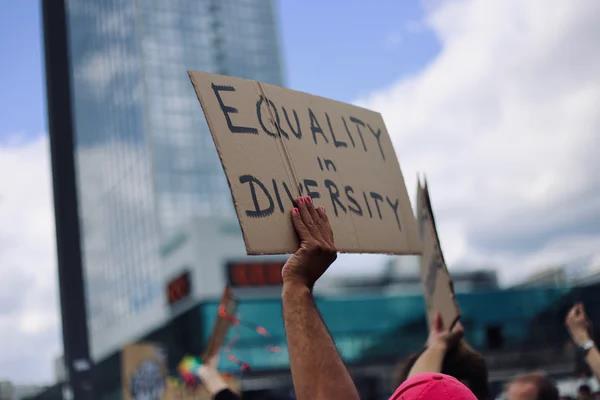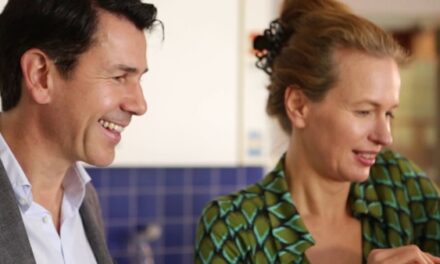In the smoke and mirrors of the internet age, authenticity has taken a hit. It’s all too easy to find yourself a faceless entity in the corporate crowd, desperate to neutralise any aspect of your life that might somehow out you as anything less than consummately in control. Maintaining this façade can be overwhelming. What’s more, its base principle, that of the idealised entrepreneur, the uber-shrewd, positive-mindset-bringing, pseudo-humble Instagram exhibitionist, is a fallacy.
The problem lies with elitism. Entrepreneur Land is awash with so-called Winners who’ll claim they’ve “struggled” their way to the top, without ever really telling you how. Why? Because tarnishes the image they’ve created for themselves.
There is, however, a way out. If industry culture exists to smooth the edges off anyone who doesn’t quite fit the banal, vanilla professionalism of LinkedIn performativity, there can be nothing more striking than honesty. Embracing flaws and owning your story can create a unique personal brand that, harnessing your weaknesses, can prove a mark of strength when it comes to engaging those who matter. After all, as former Fortune 500 CEO and bestselling author Doug Conant so pointedly reminds us, “Your life story is your leadership story.”
But what does this mean for you? Here are three reasons you should be using your weaknesses to own your story.
Reason 1) “Beauty is truth, truth beauty”:
Your personal brand is built around you, or at least what you want to show the world. Owning your story is the power that only you can harness; after all, it’s your particular set of trials and tribulations that make you, you. Incorporating honesty into your leadership communications strategy sets you apart from peers who want to appear untouchable; the ability to tell your founder story offers your clients a chance to understand who they’re working with, and what it is that makes you human. Everyone has something that steers them, that drives them to succeed. Your clients want to know what makes you hunger for success:

(Copyright: Benjamin Manley)
Are you a working mother, doing what you can to give your children a better future?
Perhaps you’ve declared war on the boys’ club that told you, “No, you’ll never make it”?
Maybe you’re a first-generation university grad who’s fighting to subvert expectations about what you could or should achieve?
Conant tells us that there’s a whole other side of us beyond the corporate; all we have to do is set it free. Whatever your story is, your clients need to know. Business transactions can be cold; showing you have soul is key to making your voice stand out.
Besides, if you don’t own your story, it won’t be long before somebody else begins to make assumptions about what that story might be. That’s why the most effective communications strategy you can implement is self-acceptance of your journey. Taking responsibility for personal and professional flaws gives your brand reinforced authenticity; clients know you’ve nothing to hide, and are liberated enough to admit it.
Reason 2) An end to impostor syndrome:
Impostor syndrome can cripple burgeoning careers and leave talented professionals questioning their worth. This often stems from the belief that someone has merely managed to obscure their failures and will subsequently be discovered as underqualified for a job or position. “It’s the feeling that ‘I’ve just got to be more like Jack Welch or Richard Branson’,” says Conant. “But life is not epiphany-driven.” It’s this honesty that can revolutionise your attitude towards impostor syndrome.
So how can incorporating vulnerability into your personal brand leave your fears powerless?

(Copyright: Ryoji Iwata)
It’s simple. Learning to accept your flaws and using them to strengthen your leader success story can create self-awareness. If impostor syndrome thrives in the dark, frosty habitat of secrecy, authenticity can offer solace; it might not bring an end to your impostor syndrome, but it can take a weight off your shoulders in no longer having to maintain the veneer that you’ve never put a foot wrong, in business or otherwise. Owning the warts and all aspects of your story means holding up a mirror to your own personal struggles and understanding that colleagues have them too. The only difference is that you’re no longer internalising yours.
Being able to talk confidently about fears and failures is freeing; taking control of these so-called ‘shortcomings’ yourself means that you aren’t waiting for others to discover them and use them against you. Impostor syndrome is an irrational but dangerous creature. Owning your story via affirmative leadership communications is vital in ending its grip over the frightened professionals of today.
Reason 3) Open-mindedness breeds diversity:
21st century business has to work for everyone, and adapting your personal brand to show who you are is all about letting clients know that you care. If you want to use your industry knowledge for good, it’s crucial to ensure that you define yourself as different from large parts of the professional world who often exclude those who don’t ‘fit’ with their idea of entrepreneurship.

(Copyright: Amy Elting)
Minority voices continue to go unheard in business, so if you want to ensure that diversity and inclusion magnifies the leverage that these under-supported groups have in a professional environment, allyship is all about making yourself vulnerable. It’s not about one-upmanship or comparing struggles, rather that owning your story gives your personal brand an authenticity that allows for more honesty in a corporate climate.
Diversity and inclusion are crucial in levelling the playing field; anything that those in a position of privilege can do to help is one small step to a fairer society. Whilst using your flaws to strengthen your personal brand of leadership communications might not seem like much, it can do wonders in removing the red-tape and nebulous elitism that dissuades so many marginalised would-be entrepreneurs from owning their story too.
“What is the highest truth about leadership?” asks Conant. “People.” All that’s left for you to do is prove it.
Author: Anna Hanlon
Interested in the Own your Story program? Please drop us a line




